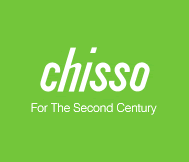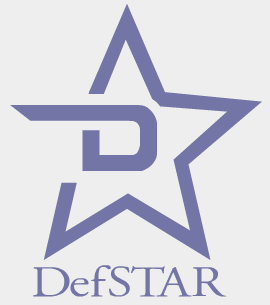
Animate Ltd. is the retailing arm of MOVIC and is the largest retailer of anime, Video games and manga in Japan. The first and headquarters store of Animate was opened in 1983 and is located in Ikebukuro, a district in Tokyo, Japan.
ASCII Corporation was a publishing company based in Tokyo, Japan. It became a subsidiary of Kadokawa Group Holdings in 2004, and merged with another Kadokawa subsidiary MediaWorks on April 1, 2008, and became ASCII Media Works. The company published Monthly ASCII as the main publication.
Genius Sonority is a Japanese video game development studio, whose staff consists of programmers who have previously worked on the Dragon Quest and Pokémon series of video games.
Sacnoth, Inc. was a Japanese video game development company. It was owned by SNK Corporation, then by Aruze following its acquisition of SNK in 2001. The company was founded in 1997 by Hiroki Kikuta with the funding of SNK; its staff, including Kikuta, were veterans of Square. While their first release was the Dive Alert games for the Neo Geo Pocket Color (NGPC), the company was founded to produce Koudelka, a role-playing game for the PlayStation.

Microsoft Japan, officially Microsoft Japan Company, Limited, is a subsidiary of Microsoft based in Japan. Their headquarters are at Shinagawa district of Tokyo.
Nissan Group, or formerly Nissan zaibatsu, is one of 15 of Japan's most powerful business groupings. Founded in 1928 by Yoshisuke Aikawa, the group was originally a holding company created as an offshoot of Kuhara Mining Co.(became Nippon Mining & Metals Company; currently part of JXTG Holdings), which Aikawa had taken over as president of from his brother-in-law, Fusanosuke Kuhara. After the bankruptcy of the Kuhara zaibatsu following World War I, Aikawa reorganized its assets into or Nippon Sangyo Corporation, Nissan for short.

A kabushiki gaisha or kabushiki kaisha, commonly abbreviated KK, is a type of company defined under the Companies Act of Japan. The term is often translated as "stock company", "joint-stock company" or "stock corporation".

AQ Interactive, Inc. was a Japanese video game developer and publisher. AQ stands for Artistic Quality. It was the parent company of the developers Artoon, Cavia and feelplus, and most recently the U.S. publisher Xseed Games. AQ Interactive and its subsidiaries produced games both under the AQ Interactive name, as well as developing for other publishers such as Microsoft Game Studios and Nintendo.

The Chisso Corporation, since 2012 reorganized as JNC, is a Japanese chemical company. It is an important supplier of liquid crystal used for LCDs, but is best known for its role in the 34-year-long pollution of the water supply in Minamata, Japan that led to thousands of deaths and victims of disease.

SETA Corporation was a Japanese computer gaming company, founded on October 1, 1985 and dissolved on February 9, 2009. Seta was headquartered in Kōtō, Tokyo. The American branch of Seta was located in Las Vegas, Nevada.
Cheerio Corporation is a soft drink manufacturing company headquartered in Takatsuki, Osaka Prefecture, Japan.
Interchannel, Inc. was a Japanese video game developer and publisher. Previously known as NEC Interchannel and before that NEC Avenue, it was originally a subsidiary of NEC before 70 percent of the company was sold to Index Corporation for approximately 3 billion yen in 2004. Interchannel's games tended to be Japanese only, however the company established Gamebridge Ltd., a UK-based joint venture with Bergsala, that published its games in Europe. Only ten games were ever published.

Albis is a retail and wholesale company headquartered in Imizu, Toyama Prefecture, Japan. It is listed on the second tier of the Nagoya Stock Exchange. The name stands for "Active Leader with Best Information and Strategy".
Manglobe Inc. was a Japanese animation studio and production enterprise, active from 2002 to 2015. Manglobe was formed on February 7, 2002 by Sunrise producers Shinichirō Kobayashi and Takashi Kochiyama. The studio filed for bankruptcy in September 2015 after getting in an estimated debt of 350 million yen.
Matrix Software is a Japanese video game development company located in Tokyo. Founded in July 1994 by former members of Climax Entertainment and Telenet Japan, the company has since created games for a number of systems beginning with their action-adventure game title Alundra in April 1997. Matrix has teamed with other developers such as Square Enix and Chunsoft to produce games for existing franchises such as Final Fantasy and Dragon Quest, as well as other anime and manga properties. In addition to game console development, Matrix Software has also made games for various Japanese mobile phone brands since 2001.
Ancient Corp. is a video game developer founded on April 1, 1990, founded by the game music composer Yuzo Koshiro. The company was co-founded by his mother, Tomo Koshiro, while his sister, Ayano, also works at the company as a character and graphic designer. In addition to developing, planning, and producing games, Ancient contributes music to other games not directly worked by the company.
Kanesue Co., Ltd. is a company that operates a chain of supermarkets in Japan. The company operates in Aichi, Mie, and Gifu. The company is headquartered in Ichinomiya, Aichi, and is a member of the CGC Japan.

Defstar Records, Inc. was a Japanese record label, a subsidiary of Sony Music Japan.
TGL, Inc. is a Japanese company dealing with developing, constructing and planning of various computer systems and software. This company supports the operating systems: Java, C, C++, Oracle, asp, Linux, Unix, Windows NT.

iXIT Corporation, formerly known as Index Corporation, is a Japanese corporate information and communications technology company owned by Sawada Holdings.










